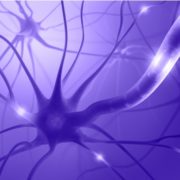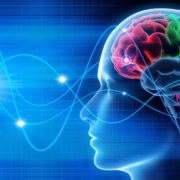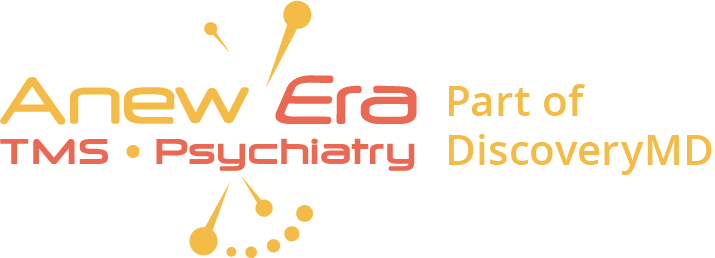Recovery From Depression After Addiction Treatment
Depression often coexists with substance use disorders. Depression symptoms may have developed after someone has become chemically dependent on drugs or alcohol, or this common mental health disorder may have preceded the substance abuse. In many case, individuals struggling with depression will often use alcohol or drugs to help mask the negative effects of the depression. Self-medicating depression with substances only exacerbates the misery and becomes what is referred to as a dual diagnosis, or the presence of both a substance use disorder alongside a mental health disorder.
There are various scenarios that involve depression following addiction treatment:
- After getting treatment for the addiction, residual co-occurring depression may linger. This can happen when the individual did not receive their treatment from a dual diagnosis program, where both disorders would have been addressed and treated in an integrated plan. Even if the individual did receive the specialized dual diagnosis treatment, antidepressants may not be adequate to suppress the depression symptoms.
- The depression may be a new post-rehab development, and was not present before. In recovery, there is often a difficult adjustment to me made. After years of living in an altered state due to substance abuse, sobriety may not seem all that great initially. In the early months of recovery feelings of depression can set in when expectations are not immediately met. Also, the consequences of the addiction may now be fully realized in sobriety, which can cause feelings of sadness, guilt, or shame.
- Depression might be one of the post-acute withdrawal symptoms (PAWS) that may stubbornly persist for months following treatment. After years of using brain-altering chemicals there will be some long-lasting residual effects. Even after going through a detox and withdrawal program and rehab, the PAWS can dog the person for up to a year. In addition to depression, other PAWS symptoms include anxiety, insomnia, and lack of energy.
Regardless of how or when the clinical depression surfaced, learning about recovery from depression after addiction treatment is important. Depression in recovery can pose serious risks to not only the recovery itself, but also may cause impairment in functioning, adverse effects in relationships, reduced productivity at work, and increased suicide risk.
Know the Symptoms of Major Depressive Disorder
Depression is a vexing mental health disorder, and it is very difficult to pinpoint the original source of the disorder. There are still many unanswered questions about the origin of this complex mental health condition, although some contributing factors have been identified. These include:
- Genetics. Depression often runs in families
- Biological. Neurotransmitter imbalances or alterations in brain structures have been identified in neural imaging
- Environmental. Difficult life circumstances, such as a history of sexual or physical abuse, sudden death of a loved on, a serious medical condition, childhood neglect or abuse, divorce, early exposure to drugs or alcohol
- Temperament. Personality traits may influence coping mechanisms for managing adversity or stress
Although there are several variants of clinical depression, the core symptoms identified in the DSM-5 include:
- Disinterest in usual activities
- Fatigue
- Feelings of sadness and despair
- Sleep problems
- Sudden weight gain or loss
- Slowed thinking and movements
- Irritability
- Difficulty concentrating or making decisions
- Unwarranted feelings of guilt or shame
- Suicidal ideation
A diagnosis of clinical major depressive disorder (MDD) is made when an individual has at least five of these symptoms.
How Depression Impacts Recovery
When someone makes the momentous decision to get sober and change their life they usually have high expectations. They look forward to feeling whole again, to be able to enjoy life and be productive. Those things are indeed valid expectations in recovery, but they may take longer than expected to actually be realized. Expecting too much too soon is one of the challenges in early recovery. But in many cases, a clinical case of depression is in play.
In active addiction, the brain’s structures and chemistry are altered. Depending on how long the substance use disorder existed, and how heavy the consumption of the substance, it can take time for the brain to stabilize and begin to normalize. The brain had ceded the role of dopamine production to the drug or alcohol, which provided the synthetic rush of this neurotransmitter. For this reason, it may be awhile before the individual’s natural brain chemistry will restore normal functioning. During this period of transition, it is very common to feel a lack of joy or happiness.
Depression can also set in as a result of persistent PAWS symptoms. This can be disheartening, as the individual hopes to feel good again in recovery but it seems to elude them. When depression persists in recovery it can set off a cascade of triggers that can make the individual vulnerable to relapsing. They may grow weary of feeling so down and begin to yearn for the substance that formerly took those negative emotions away. Recovery from depression after addiction rehab is essential, as depression can undo all the hard work of getting sober in the first place.
Suicide Risk with Depression in Recovery
Someone in early recovery is emotionally vulnerable. They are often struggling to make significant changes in their lives. This can mean moving into sober living housing, leaving old friendships behind, rebuilding a career after job loss due to addiction, and dealing with legal problems caused by the addiction. Early recovery is very difficult for many, and often involves feelings of loneliness.
When depression sets in it can become a serious risk during early recovery, many times leading to relapse that might result in an overdose or overdose death, or possibly result in a suicide. The combination of depression and the challenges faced in early recovery can be lethal.
It is important to also mention the risk of suicide that can be actually caused by antidepressants, which is still the conventional treatment for depression. The risk of suicidal thoughts and actions is particularly elevated in younger patients, those between the ages of 16-24. In fact, the antidepressants now carry a black box warning for alerting parents and young people to this potential risk.
Treatment for Depression
Most people are aware that antidepressant drug therapy, prescribed in tandem with psychotherapy, is the industry standard for treatment of depression. What is not well known is that the medication is only effective in about half the people who try the antidepressants. This presents a serious problem for individuals in recovery who are battling depression and who want to avoid a relapse.
There is an alternative treatment option for those who aim to recover from depression after addiction but who were not responsive to the antidepressants. For about a decade, TMS therapy has been shown to help these treatment-resistant patients. Combining TMS therapy with psychotherapy and certain holistic therapies can result in a positive treatment outcome for many.
TMS therapy is a brain stimulation technique that uses electro-magnetic energy to help rebalance brain chemistry. TMS does not involve any invasive surgery, so there is no general anesthetic needed. TMS is basically a drug-free treatment option for individuals who were not helped by the usual treatment protocol.
How TMS Therapy Can Help When Antidepressants Don’t Work
While antidepressants are helpful to 50% of depression patients, they do not alleviate symptoms in the other 50% of patients. Although there are about 30 different brands of antidepressants on the market, within 4 categories with each category functioning in a unique way on brain neurotransmitters, finding the right one for any particular patient may be akin to throwing a dart at a dartboard. Science still has a lot to learn about treating depression.
TMS therapy offers hope for recovery from depression after addiction in treatment-resistant individuals. TMS therapy is a safe and effective alternative approach to treating depression that can be provided in a doctor’s office. There is no need for a hospital stay or any recovery period following the treatments.
TMS therapy can help alleviate many symptoms associated with depression. In particular, TMS has shown in a multitude of clinical trials that it can improve focus and concentration, sleep quality, energy level, and overall mood. TMS works by applying electrical currents to the area of the brain called the mood center. This region is responsible for mood regulation, decision-making, impulse control, memory, and other executive functions.
TMS therapy is typically scheduled for 4-6 weeks for optimal results, achieving a 60% response rate, with 38% remission rates in clinical trials. The patient is seated comfortably while the magnetic fields are administered through a coil placed over the scalp. During the 40-minute session, the patient will feel and hear a tapping sensation where the pulses are delivered. The resulting electrical currents will target the sluggish brain cells and stimulate them over the course of treatment. Over time, this helps to rebalance brain chemistry and provide symptom relief. Patients may benefit from booster sessions several months later to help maintain treatment results.
There are some minor potential side effects occurring with TMS therapy. These include mild to moderate headache, tingling in the face, and scalp tenderness. Generally, these effects dissipate without any interventions needed.
Anew Era TMS & Psychiatry Leading TMS Provider in California and Texas
Anew Era TMS & Psychiatry offers highly trained doctors and technicians to deliver TMS therapy for post-rehab depression. Recovery from depression after addiction can require patience while the best course of treatment is identified. For individuals who did not experience depression symptom relief through the traditional treatment route of antidepressant drug therapy, check out TMS therapy by contacting Anew Era TMS & Psychiatry today at (888) 503-1549.











